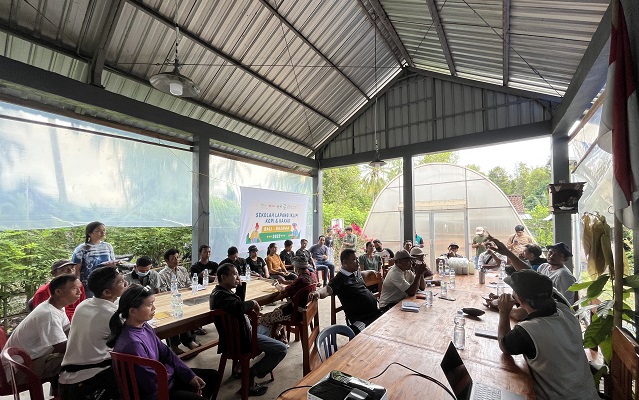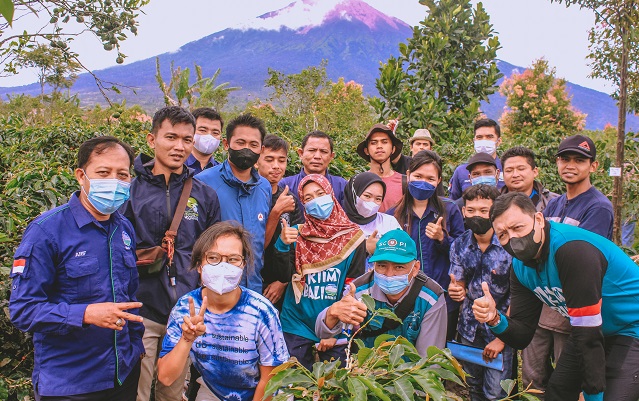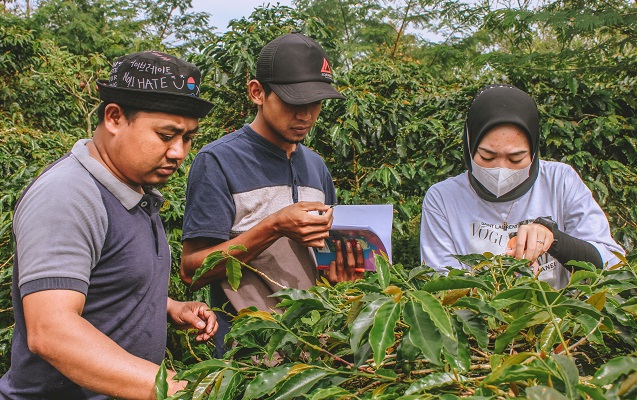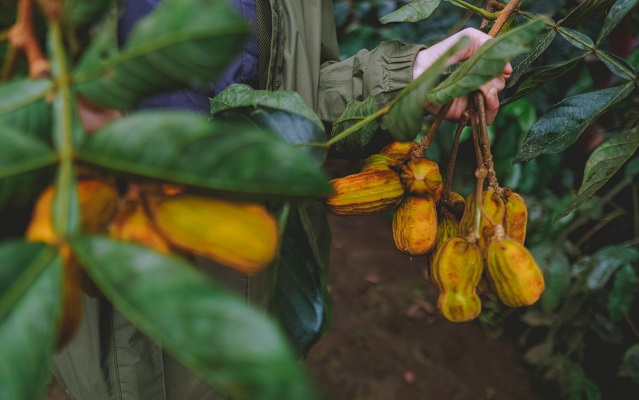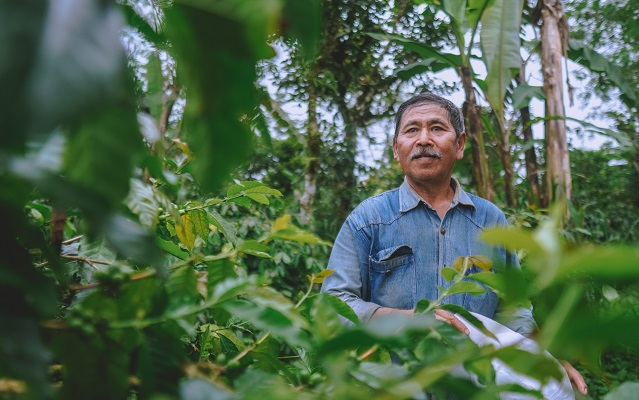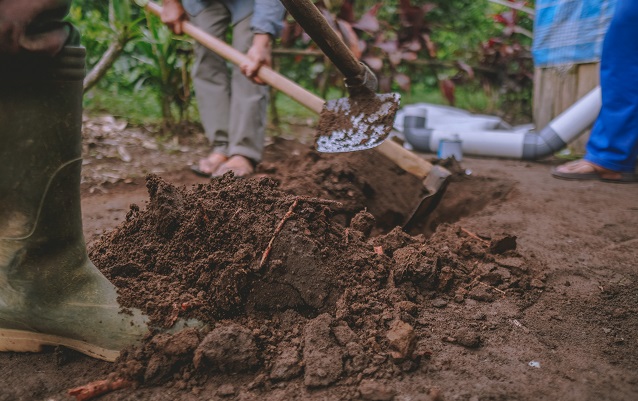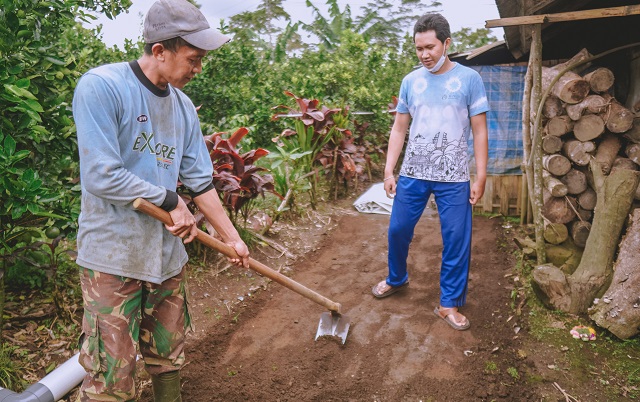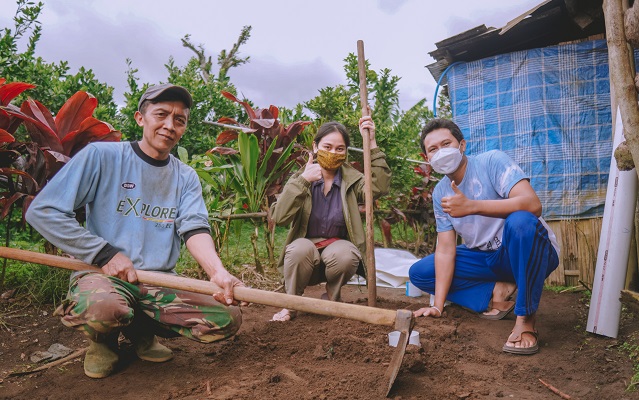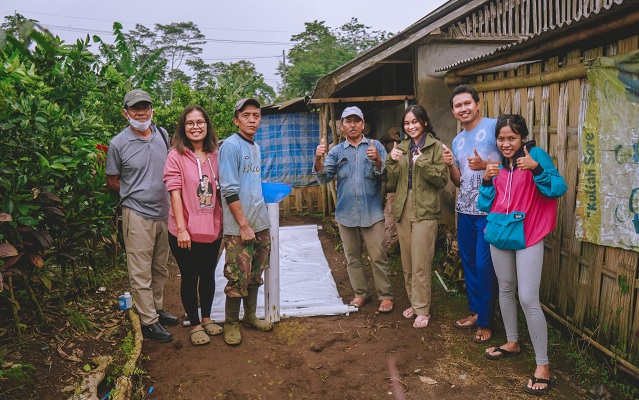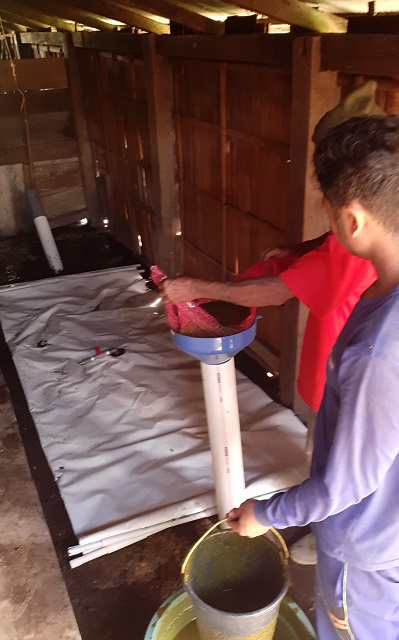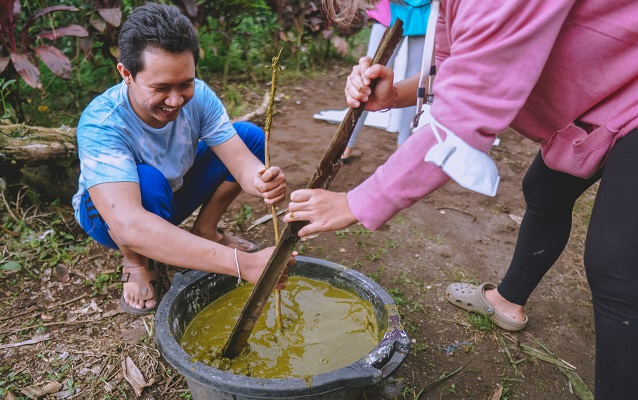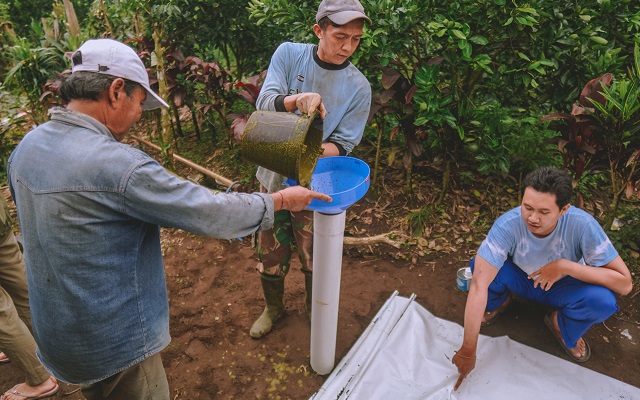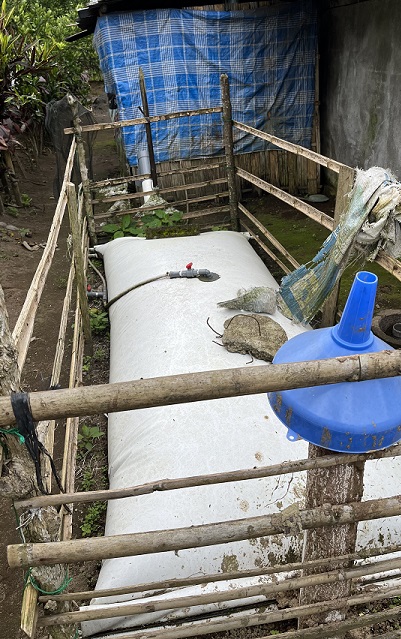Biogas initiative for agriculture in Bali and Flores
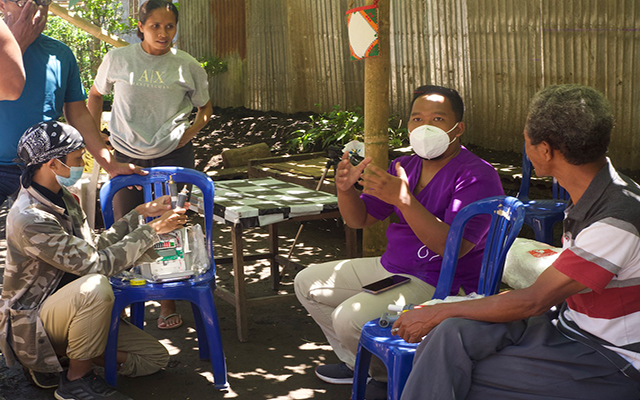
In Indonesia, more than 25 million rural households rely on traditional biomass fuels. Biogas digesters emerged as a renewable energy source to replace firewood stoves. However, they spread slowly and are often no longer functional just a few months after installation. So that they spread faster and are in use longer, this IKI Small Grants project installed cheap and user-friendly biogas digesters on 40 coffee and chocolate farmers’ plantations in Bali and Flores. In an accompanying training programme, farmers learnt how to operate and maintain the biogas digesters and how to effectively adapt their farming practices to climate change and use co-products of biogas production as organic fertilizer. The project also included a feasibility study for potentially upscaling the project concept and policy dialogues on national targets for biogas and bioenergy.
INITIAL SITUATION
In Indonesia, more than 30% of rural households rely on traditional biomass fuels. Of the total emissions from deforestation, firewood harvesting in Asia accounts for 25-42% of total emissions. Biogas digesters emerged as a renewable energy source to replace firewood stoves, reduce emissions from untreated manure while also reducing health risks associated with indoor house pollution, especially through smoke.
However, digesters are not being deployed fast enough. At the current rate it would take 1,000 years to reach the country’s need for two million digesters. As a solution, the implementing organisation developed cheap and user-friendly biogas digesters.
TARGET GROUP
The projects main beneficiaries were farmers, particularly those who rely on LPG and firewood as their main energy source while also owning livestock. The farmers were also supported in selling their products at a higher price. Coffee and chocolate farmers in Bali and Flores were selected in cooperation with the local farmers’ collective to participate in project activities. While the farmers were the direct target group of the project, their families benefit from reduced indoor air pollution.
The project’s second target group were Indonesian government representatives and other stakeholders including NGOs and private sector participants joining a workshop organised by su.re-co, focusing on important issues for Indonesia’s carbon market.
VIDEOS FROM THE PROJECT
APPROACH AND ACTIVITIES
In practical field trainings, the farmers not only learnt how to operate and maintain the biogas digesters installed but also how they can effectively adapt to climate change.
The educational program worked in collaboration with the Indonesian Agency for Meteorology, Climatology and Geophysics to combine traditional agricultural knowledge with the latest climate science.
Conventional concrete biogas digesters are one-off production and are built underground, making installation costly and time-consuming, and maintenance difficult. This combined with a lack of incentives for farmers results in only 50 per cent of digesters still in use after installation. The underlying causes of these problems are costs, incentives, and scalability.
To overcome these obstacles, the project developed a biogas digester made of economical and readily made off-the-shelf materials that can be mass-produced and installed above ground for more efficient repair and replacement. This reduces installation time from one week to one day and lowers installation costs considerably.
The project also included a feasibility study on a carbon offset system to generate additional benefits for the target group and enable sustainable and long-term project financing. The feasibility study report recommended the next steps, including lessons learned.
LATEST PROJECT HIGHLIGHTS AND IMPACTS
- Project finalised
- 42 biogas digesters installed across three islands
- Four climate field schools conducted
- Feasibility study conducted
- Hosted a policy dialogue at the Indonesia Sustainable Energy Week, with two ministries
- Conducted an Indonesian Carbon Market Workshop with 60 participants from 33 organisations
CAPACITY DEVELOPMENT
Besides accessible webinars, backstopping through GIZ opened access to resourceful people, for example staff in GIZ projects in Indonesia and West Africa. This contributed to the project activities and su-re.co’s network and to developing additional know-how.
Free access to the Lightful platform through IKI Small Grants’ capacity building activities helped su-re.co manage multiple social media channels, i.e., Facebook, Twitter, and LinkedIn.
The video creation webinar organized by GIZ also supported su-re.co media by improving social media content to increase branding and engagement. Su-re.co has also submitted articles to the IKI newsletters, making it a sharable platform when meeting new stakeholders. Recognition and networking through these webinars also provided insights for su-re.co’s internal systems, such as project management.
A private consultant, provided by IKI Small Grants, contributed significantly to the organisation’s capacity development by creating a feasibility study with the project team and supporting in organising two workshops. The knowledge and engagement together have sparked many new connections and next steps to support development of the Indonesian Carbon Market.
Also thanks to the know-how generated by the IKI Small Grants project and cooperation, su-re.co managed to acquire further grants.
ABOUT THE ORGANISATION
Founded in 2015, su-re.co (Sustainability and Resilience Co) is a ‘think – do – be’ tank based in Bali, Indonesia. The organisation started a first coffee project to fulfil the promise ‘Don’t just study but do something’ and commits to buying coffee and cacao from farmers who continue with sustainable agricultural practices while scaling up scientifically supported activities and policies.
As a think-tank with a scientific background and strategic planning, su-re.co works on international research and consulting projects on environmental issues, including climate change and energy projects. As a do-tank, they work directly with national and local policymakers, smallholder farmer communities, and international organizations while simultaneously creating a business at grand through climate smart products such as coffee, cocoa, and biogas. su-re.co generates insights to helping the public and private sector working together on tackling climate change.
PRESS AND MEDIA COVERAGE
In December 2021, su-re.co presented its project and some of the current project highlights in a meeting with the German Environment Ministry (BMU) Deutsche Gesellschaft für Internationale Zusammenarbeit (GIZ) GmbH, and Zukunft Umwelt Gesellschaft (ZUG). The team members explained the background of their work and shared insights into practical implementation by visiting a user of the biogas digesters. For implementing the project, su-re.co worked closely with GIZ Indonesia, which provided technical support. Articles from su-re.co were also published in the IKI hub newsletter.

